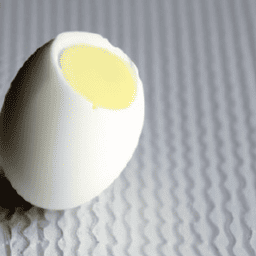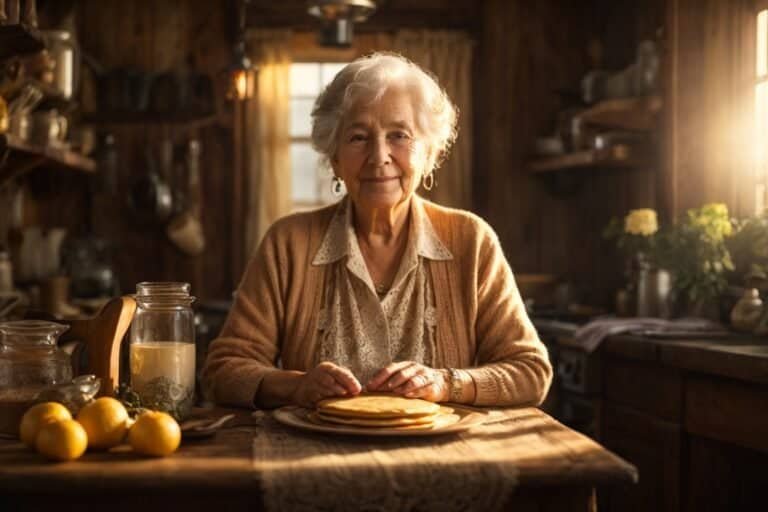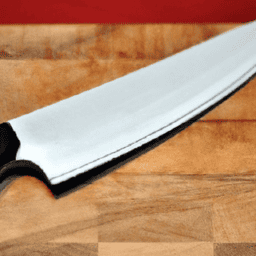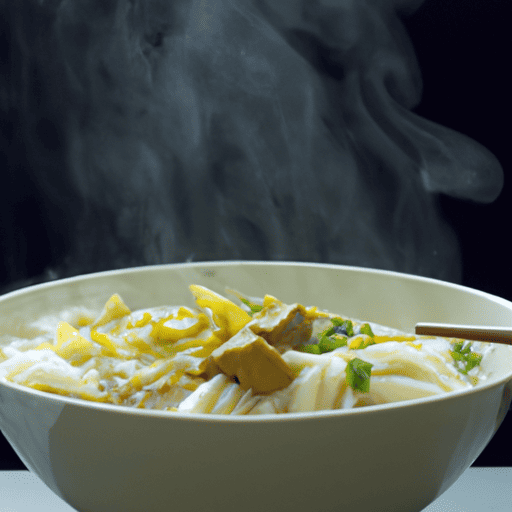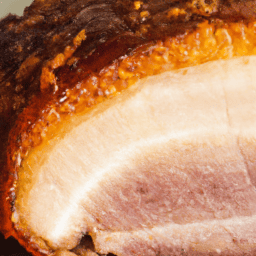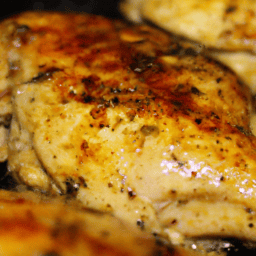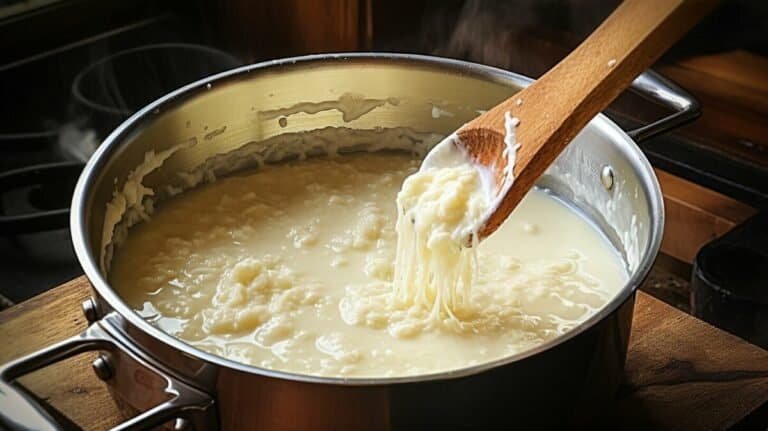How Long Do To Cook Hard Boiled Eggs
Are you tired of overcooking or undercooking your hard-boiled eggs? Well, fret no more because we have the solution to your dilemma! In this article, we will guide you through the correct timing and techniques required to achieve perfectly cooked hard-boiled eggs every time. Whether you prefer them soft and gooey in the center or firm and fully cooked, we’ve got you covered. Say goodbye to rubbery yolks and hello to egg-cellent results with our foolproof methods. Get ready to elevate your egg game and amaze your friends and family with your newfound egg-cooking prowess!
Understanding the Process
What is hard boiling?
Hard boiling is a cooking method that involves fully cooking an egg by boiling it in its shell. This method typically results in a firm and solid yolk, surrounded by a fully cooked egg white.
Why hard boil an egg?
Hard boiled eggs are not only delicious, but they also offer a convenient and versatile food option. They can be enjoyed on their own as a quick snack, used in various recipes, or added to salads for an extra protein boost. Hard boiling eggs also increases their shelf life, making them a great option for meal prepping or packing in lunches.
Differences between hard boiled and soft boiled
While hard boiled eggs are fully cooked with a firm yolk, soft boiled eggs are cooked for a shorter period of time, resulting in a partially cooked yolk that is still runny. The choice between hard and soft boiled eggs comes down to personal preference and the intended use of the eggs in a particular recipe.
Choosing Your Eggs
Fresh vs. older eggs: what’s the difference?
When it comes to boiling eggs, fresher isn’t always better. Fresh eggs can be more difficult to peel, whereas slightly older eggs are often easier to work with. The reason behind this is that as an egg ages, the air pocket inside enlarges, creating a separation between the shell and the egg white. This separation makes peeling the eggs much easier once they are boiled.
Does the type of egg matter? (Chicken, Duck, Quail etc)
Any type of egg can be hard boiled, whether it’s from a chicken, duck, quail, or any other bird. The main difference lies in the size and cooking time. Smaller eggs, such as quail eggs, will require less time to cook compared to larger chicken or duck eggs. Keep this in mind when selecting your eggs and adjust the cooking time accordingly.
Considering size: small, medium, large, extra large
The size of the egg will also affect the cooking time. Smaller eggs, such as medium or small-sized eggs, will cook slightly faster compared to larger or extra-large eggs. Take this into consideration when boiling your eggs to ensure they are cooked to your desired level of doneness.
Preparing Your Eggs for Boiling
Should eggs be at room temperature or refrigerated?
Contrary to popular belief, it is actually best to start with refrigerated eggs when hard boiling. Starting with cold eggs helps prevent cracking during the boiling process. However, if you forgot to take the eggs out of the refrigerator, you can let them sit at room temperature for a few minutes to take the chill off before boiling.
How many eggs can you boil at once?
You can boil as many eggs as you’d like, as long as they fit comfortably in a single layer at the bottom of your chosen pot. boiling too many eggs at once can lead to uneven cooking and may result in some eggs being undercooked or overcooked.
Methods for preventing cracking
To prevent eggs from cracking while boiling, there are a few methods you can try. One method is to prick a small hole in the rounded end of the egg with a pin before boiling. This hole allows any trapped air to escape, reducing the chances of the egg cracking. Another method is to add a teaspoon of vinegar to the boiling water, as the vinegar helps strengthen the eggshell.
Getting the Right Cookware
Choosing the perfect pot
When it comes to boiling eggs, choosing the right pot can make a significant difference. It’s essential to use a pot that is large enough to comfortably fit all the eggs in a single layer. Additionally, a pot with a heavy and even bottom will help distribute heat more evenly, resulting in consistent cooking.
Importance of having a lid
Using a lid while boiling eggs helps maintain a more constant and controlled temperature inside the pot. The lid traps the steam, helping the water reach and maintain a rolling boil more efficiently. This steady heat ensures that the eggs cook evenly.
Alternate tools for boiling eggs
If you don’t have a suitable pot with a lid or prefer not to use one, there are alternative tools you can use for boiling eggs. Electric egg cookers or steamers are convenient options that allow you to cook multiple eggs at once with precise control over the cooking time. These specialized appliances often come with built-in timers and can be a great addition to your kitchen if you frequently boil eggs.
Cooking Time for Hard Boiled Eggs
How long to boil?
The cooking time for hard boiled eggs can vary depending on the desired level of doneness and the size of the eggs. A general guideline is to boil large eggs for around 9-12 minutes. For medium-sized eggs, reduce the cooking time by a couple of minutes, while extra-large eggs may require a minute or two longer.
Factors affecting cooking time
Several factors can affect the cooking time of hard boiled eggs. The freshness of the eggs, their size, and the altitude at which you are cooking can all influence how long it takes for the eggs to cook. Additionally, the consistency you prefer in the yolk, whether fully cooked or slightly runny, will also impact the cooking time.
How to check if it’s properly cooked
To check if an egg is properly cooked, carefully remove it from the boiling water using a spoon and gently tap it against a hard surface. If the egg feels firm and the shell doesn’t wiggle, it is likely to be fully cooked. However, if the shell gives way easily or the egg feels soft, it may need a bit more cooking time.
The Boiling Process
Step by step guide
To hard boil eggs, follow these steps:
- Place the desired number of eggs in a single layer in the bottom of a pot.
- Fill the pot with enough cold water to cover the eggs by about an inch.
- Place the pot on the stove over medium-high heat and bring the water to a rolling boil.
- Once the water is boiling, reduce the heat to low and let the eggs simmer for the desired cooking time.
- When the eggs are cooked to your liking, carefully remove them from the pot and transfer them to a bowl of ice water to cool.
Tuning your heat source
Maintaining a steady and consistent heat source is crucial when boiling eggs. If the heat is too high, the eggs may crack. Alternatively, if the heat is too low, the eggs may take longer to cook, which can result in a rubbery texture. Adjust the heat source until you find the sweet spot that keeps the water at a steady and rolling boil without boiling over.
Tips for maintaining a constant boil
To maintain a constant boil, keep an eye on the pot while the eggs are cooking. If the water starts to lose its rolling boil, adjust the heat accordingly to bring it back up to the desired temperature. Additionally, avoid overcrowding the pot, as this can cause the water temperature to drop significantly and disrupt the boiling process.
Dealing with High Altitudes
How altitude affects boiling
At higher altitudes, the boiling point of water decreases, which means water boils at a lower temperature compared to sea level. This can affect the cooking time required for hard boiling eggs. It’s important to adjust the cooking time to compensate for the lower boiling point at higher altitudes.
Adjustments for high altitude cooking
To adjust for high altitude cooking, it is recommended to increase the cooking time for hard boiled eggs. As a general rule of thumb, add an extra minute or two to the cooking time for every 1,000 feet above sea level. This adjustment helps ensure that the eggs are thoroughly cooked despite the lower boiling point of water.
Successful hard boiled eggs at any altitude
By making the necessary adjustments to the cooking time, you can achieve perfectly cooked hard boiled eggs at any altitude. The key is to be aware of the altitude you are cooking at and make the appropriate adaptations so that your eggs are cooked to perfection.
Cooling and Peeling Hard Boiled Eggs
How long to cool?
After boiling, it’s important to cool the hard boiled eggs to stop the cooking process and make them easier to handle. It is generally recommended to let the eggs cool in a bowl of ice water for at least 5-10 minutes. This rapid cooling helps to separate the cooked egg white from the shell, making peeling easier.
Alternatives to cold water bath
If you don’t have access to a bowl of ice water, there are other alternatives to cool hard boiled eggs. You can place the eggs in a colander and rinse them under cold running water until they are completely cooled. Alternatively, you can transfer the boiled eggs to a container and refrigerate them for a few hours before peeling.
Achieving a smooth, easy peel
To achieve a smooth and easy peel, start by gently tapping the boiled egg on a hard surface to crack the shell. Then, roll the cracked egg gently between your hands to loosen the shell. Finally, peel off the shell starting from the wider end of the egg, as this is typically the easiest area to start. Peeling the eggs under cool running water can also help facilitate the process.
Common Mistakes While Preparing Hard Boiled Eggs
Overcooking
Overcooking is a common mistake when it comes to hard boiling eggs, resulting in a dry and rubbery texture. To avoid this, make sure to follow the recommended cooking times and adjust them based on the size and freshness of the eggs.
Undercooking
Undercooking is another mistake that can happen when boiling eggs, leaving the yolk partially runny. To ensure the eggs are cooked to your desired level of doneness, be mindful of the cooking time and make any necessary adjustments based on personal preference.
Peeling difficulties
Difficulty peeling hard boiled eggs can be frustrating. To make peeling easier, use slightly older eggs and cool them rapidly in ice water after boiling. Gently tapping the eggs on a hard surface to create small cracks before peeling can also help loosen the shell.
Overcrowding the pot
If you try to boil too many eggs at once, overcrowding the pot can lead to uneven cooking and may result in some eggs being undercooked or overcooked. It’s best to boil eggs in a single layer at the bottom of the pot, allowing enough space for the eggs to cook evenly.
Varieties of Hard Boiled Egg Recipes
Deviled eggs
Deviled eggs are a popular and delicious appetizer made with hard boiled eggs. The cooked yolks are mixed with mayonnaise, mustard, and various seasonings, then piped or spooned back into the egg white halves. Deviled eggs are versatile and can be customized with different toppings or fillings to suit individual tastes.
Egg salad
Egg salad is a classic dish that combines chopped hard boiled eggs with mayonnaise, mustard, and other ingredients, such as onions, celery, and herbs. It can be enjoyed as a sandwich filling, a topping for salads, or as a spread for crackers and bread.
Scotch eggs
Scotch eggs are a delightful treat that features hard boiled eggs wrapped in sausage meat, coated in breadcrumbs, and deep-fried or baked until golden and crispy. This delicious combination of flavors and textures makes Scotch eggs a popular snack or picnic food.
Pickled eggs
Pickled eggs are hard boiled eggs that have been immersed in a pickling solution, typically made with vinegar, spices, and sugar. The eggs are left to marinate for several days, allowing them to absorb the tangy and flavorful brine. Pickled eggs are a great addition to charcuterie boards, salads, or eaten on their own as a tangy and savory snack.
With these tips and knowledge about hard boiling eggs, you can confidently prepare and enjoy this versatile and nutritious food in various ways. From simple snacks to flavorful recipes, hard boiled eggs are a kitchen staple that can be enjoyed by everyone. So go ahead, boil some eggs and explore the many possibilities they offer!

